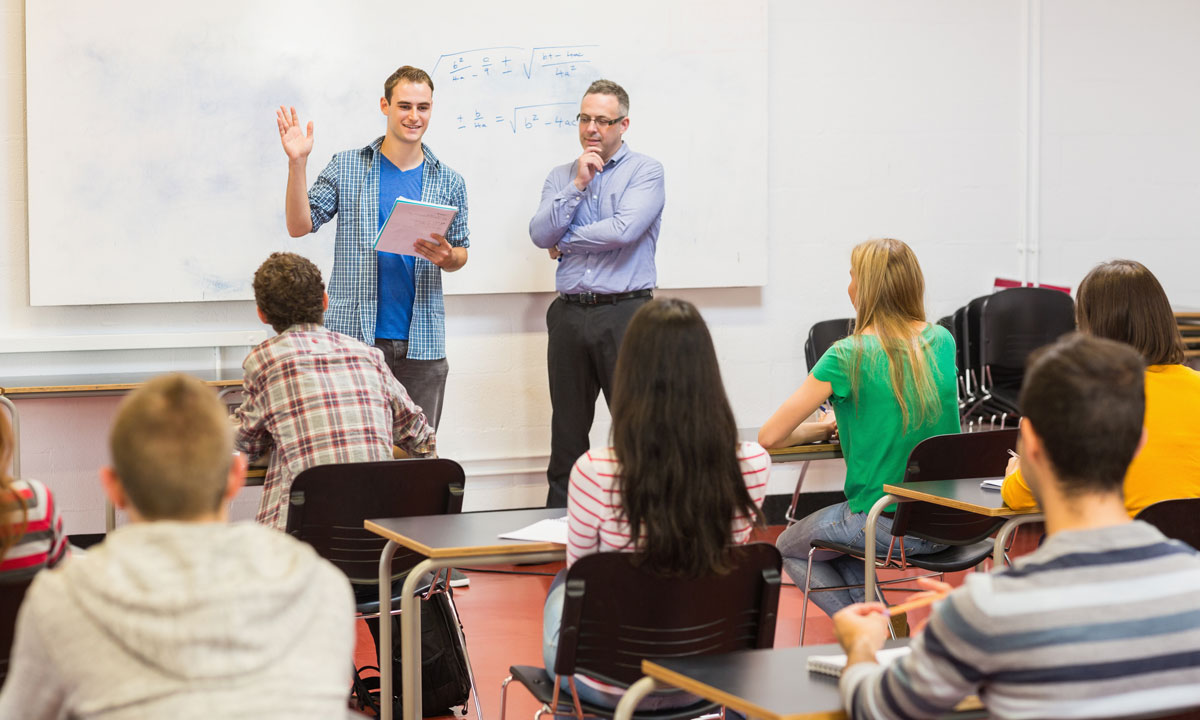Teachers in All Subjects Must Help Prepare the Next Generation of Voters
Hamilton: The role of social studies teachers in civic learning is obvious, but all educators can contribute to building a more responsible citizenry.

Get stories like this delivered straight to your inbox. Sign up for The 74 Newsletter
As the November election approaches, political ads and opinions are filling the airwaves, smartphones and mailboxes, particularly for those of us who live in swing states (in my case, Pennsylvania). It can be challenging for voters to make sense of the messages they are receiving, especially with the growth of misinformation and disinformation.
While Americans of voting age struggle to navigate the political landscape, educators, parents and community leaders must also attend to the needs of the next generation. Today’s K-12 students will be tomorrow’s voters, legislators and civic leaders, and teachers play an essential role in helping them develop the knowledge, skills and attitudes they will need to fulfill their civic responsibilities.
The role of social studies teachers in fostering civic learning is obvious, but educators in all subjects can contribute to building a more informed and responsible citizenry. Science teachers, for instance, can help students identify misinformation about climate change, vaccines, even Vitamin C. Math teachers can provide strategies for the accurate interpretation of statistics or charts. From the earliest grades, teachers are responsible for helping students learn to interact constructively with their peers, be open to ideas that might differ from their own and apply a critical lens to information they receive. This all directly relates to civic learning and engagement.
At the same time, educators face challenges associated with cultivating responsible citizens, including the increasing politicization of school curricula. In a recent Education Week survey of principals, nearly a third cited the political, controversial nature of civics as a barrier to teaching it. In Wisconsin, educators reported increasing political pressures and restrictions on teaching about elections. Moreover, opportunities for high-quality civic learning are deeply inequitable, with young people in marginalized communities lacking access to experiences that promote civic readiness. These disparities almost certainly contribute to differences in performance on assessments of civic learning.
Our team at the American Institutes for Research wanted to understand educators’ opinions about schools’ responsibilities for supporting students’ civic learning and the conditions that might influence their teaching in this area. In late 2022, when schools were confronting ongoing challenges such as COVID-19, systemic racism and the role of social media, we surveyed a nationally representative sample of K-12 public school teachers in all subject areas about their views on civics education.
More than 80% of respondents said it was very important or essential for schools to help students develop civics-related knowledge, skills and attitudes, including a commitment to democracy and an ability to engage effectively in civic life. For the most part, these data
points were consistent across subjects, grade levels and geographical locations, even on complicated topics such as the lasting impact of slavery.
These results indicate that most teachers are committed to fostering civics learning. They
also point to several actions that policymakers and education leaders could take to
help advance schools’ civics goals:
- Offer better professional learning. Although 84% of teachers said they feel it is very important or essential for schools to promote a commitment to democracy, only half reported being very or extremely confident in their ability to teach this topic. Sixty percent of respondents agreed that they needed more professional learning in this area.
- Provide guidance on navigating restrictions on civics-related instruction. About 30% of respondents said they had received directives from district or school leadership to limit discussions about political or social issues. By comparison, 70% cited pressure to show progress on standardized tests in other subjects as a significant barrier to teaching civics.
- Communicate more clearly about state standards. Academic standards can communicate states’ goals and encourage instruction aligned with those goals — but only if teachers are aware of them. Although every state has standards related to civics, 47% of surveyed teachers reported not knowing whether their own states had them. State and district leaders should help teachers of all subjects understand and implement standards related to civic learning.
The results from our survey make it clear that teachers nationwide believe schools should foster students’ civic development, but that they need additional support to do this effectively. It is in the interest of all Americans to help ensure that educators have the resources, guidance and autonomy they will need to fulfill this critical responsibility. Our findings add to a growing body of research that suggests a need for standards, assessment systems, professional learning and instructional guidance that help teachers of all grade levels and subjects integrate civic content into their instruction in ways that are nonpartisan and grounded in evidence.
Misinformation and disinformation will continue to threaten political and civic engagement, but by supporting teachers today, policymakers and education leaders can help them ensure that tomorrow’s voters can handle it.
Get stories like these delivered straight to your inbox. Sign up for The 74 Newsletter

;)
